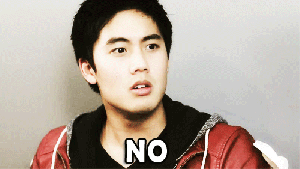Emotional Bank Accounts Changed My Life: Part 1
Has anyone asked you for a favor and everything inside screams, “NOOoo!”  Sometimes you ignore that and still say yes, but it almost makes you feel sick to your stomach (It’s a struggle). I’ve thought a lot over the past few years about how this situation happens and tried to figure out how to prevent it. One day I read something that’s changed everything! It affects how I now view my relationships, my work, and really most every area of my life. It’s given me language to describe how to be a better leader, friend, co-worker, and family member. (I’ll describe it in this post, and give more examples in the next.)
Sometimes you ignore that and still say yes, but it almost makes you feel sick to your stomach (It’s a struggle). I’ve thought a lot over the past few years about how this situation happens and tried to figure out how to prevent it. One day I read something that’s changed everything! It affects how I now view my relationships, my work, and really most every area of my life. It’s given me language to describe how to be a better leader, friend, co-worker, and family member. (I’ll describe it in this post, and give more examples in the next.)
What I learned is the concept of an Emotional Bank Account, talked about in Stephen Covey’s Seven Habits of Highly Effective People.  The idea is, just like a financial bank account, other people can make deposits into or withdrawals from your emotional bank account. Likewise, you can do the same for their emotional bank account.
The idea is, just like a financial bank account, other people can make deposits into or withdrawals from your emotional bank account. Likewise, you can do the same for their emotional bank account.
You make a deposit into someone’s emotional bank account by caring for them, or doing something that directly benefits them in some way. You can also make a deposit by following through on a commitment you’ve made, or just by showing that they’re valuable as a human being, and not just because of what they can do for you. 
You make a withdrawal when you ask for a favor, or in general asking something from a person that “costs” them something. You also make a withdrawal by “messing up” or breaking trust in some way. This happens when a person expected you to do something and you didn’t meet their expectations.
As long as your account with someone is in the plus- you’re ok. They’ll probably be glad to help you out. You’ll probably have a healthy give and take relationship with them. But, if your account is overdrawn, that’s when they’ll begin to feel used and probably start telling you no. The more overdrawn an “account” is, the less a person is going to want to help you out in anyway and may even become bitter, leading to even worse problems.
This concept of the Emotional Bank Account can be applied to every single relationship in your life. As you think about all of your relationships, answer the following questions:
1. How would you rate the accounts you have with the people in your life? Are people generally glad to help you out? How would you rate your family and work relationships?
2. How many “deposits” are you making into the emotional bank accounts of your family, your friends, your co-workers, and volunteers you work with?
3. Do you have anyone you feel your account is overdrawn with? Are you always asking for things, but never being thankful and never giving back? Is there anyone you tend to be extra critical with, but seldom offering praise? Is there anyone in your life constantly asking from you?
Note: I want to be honest and acknowledge that I’m not perfect in this area. It’s something I work on. I have to practice saying no to people, and grow to be more aware when I’m asking too much. I really do think about this concept all the time and believe it truly has affected almost every area of my life in a practical way.
Here’s a few links on the subject:
http://blogs.webmd.com/art-of-relationships/2012/06/keep-track-of-your-emotional-bank-account.html
http://lifetrainingonline.com/blog/the-emotional-bank-account.htm
http://wordscapes.net/emotional-bank.htm
http://integratedleader.com/wp-content/uploads/2011/03/Your_Emotnal_Bank_Acct.pdf
When someone asks you for something, but their account is overdrawn, this is how you feel: 





